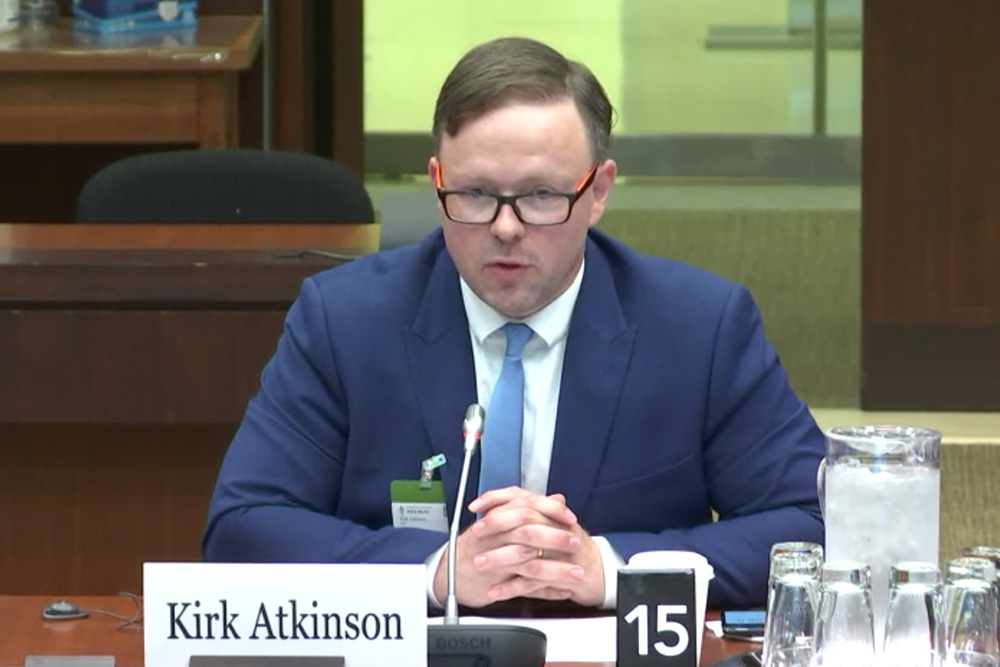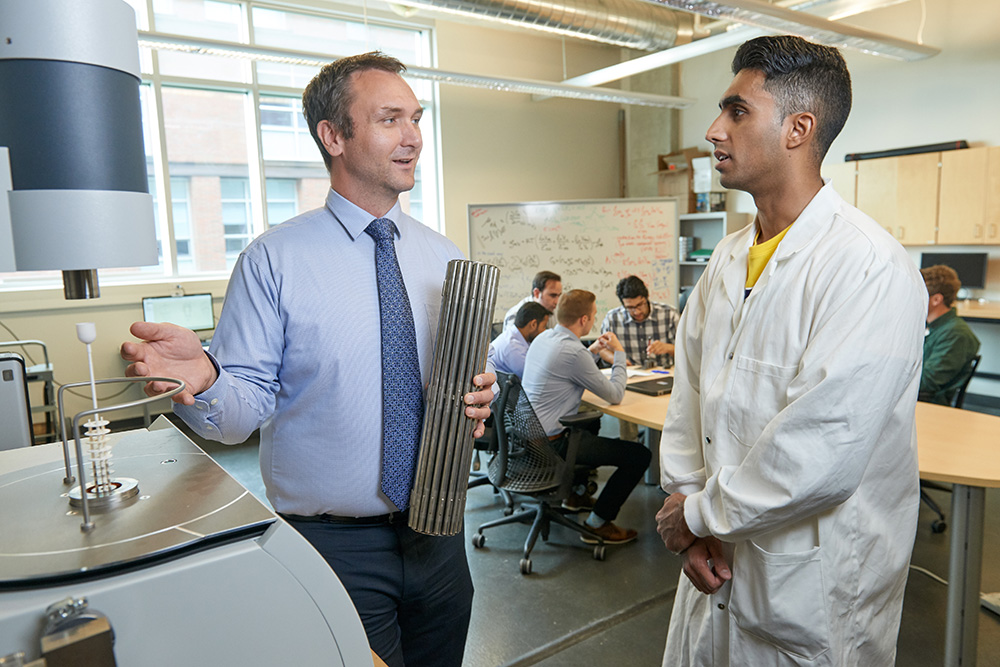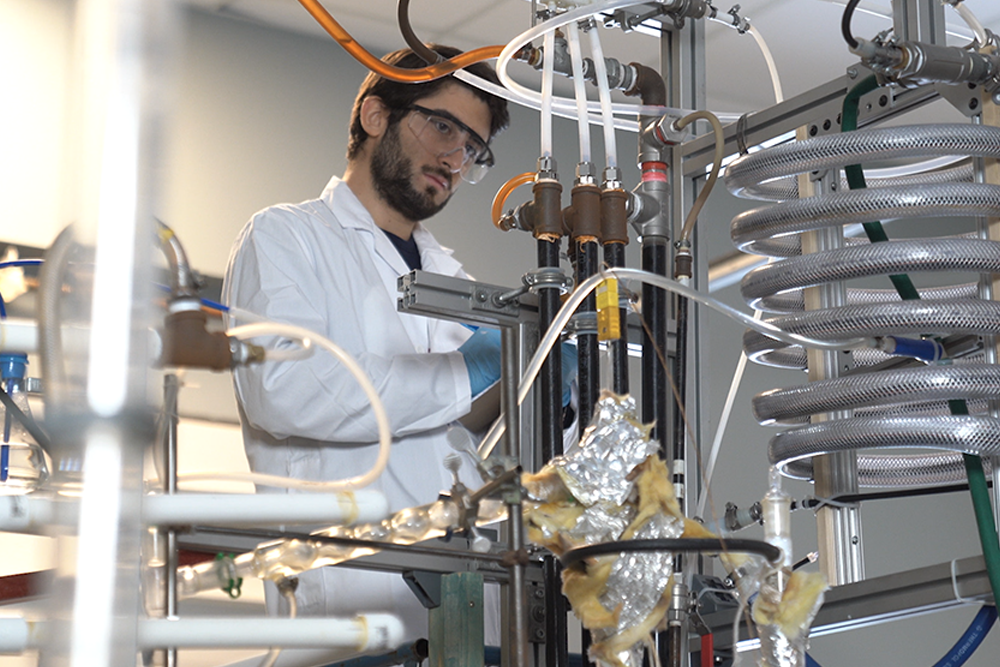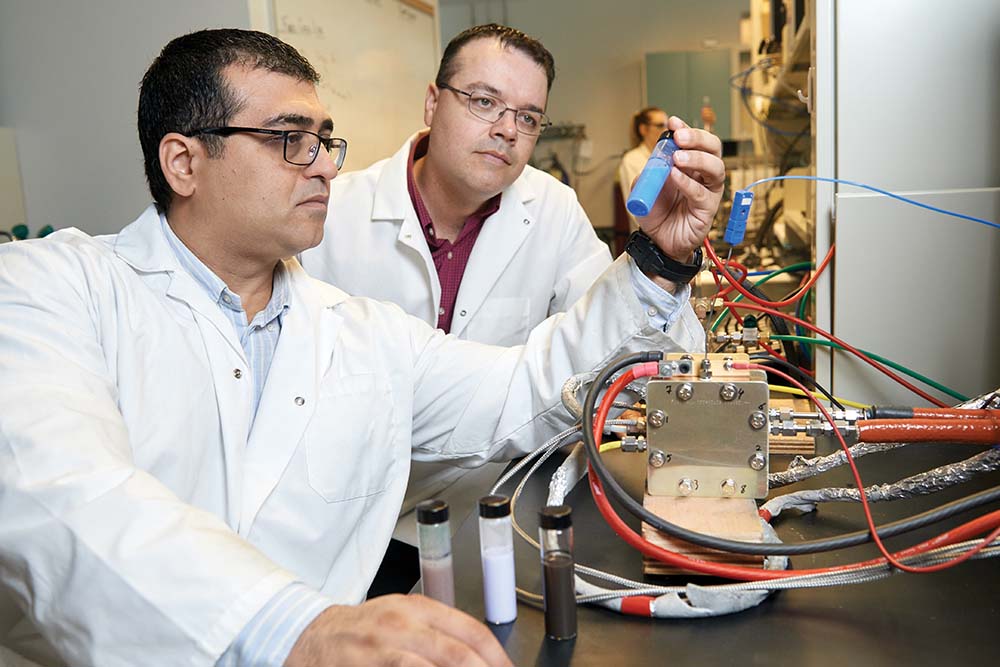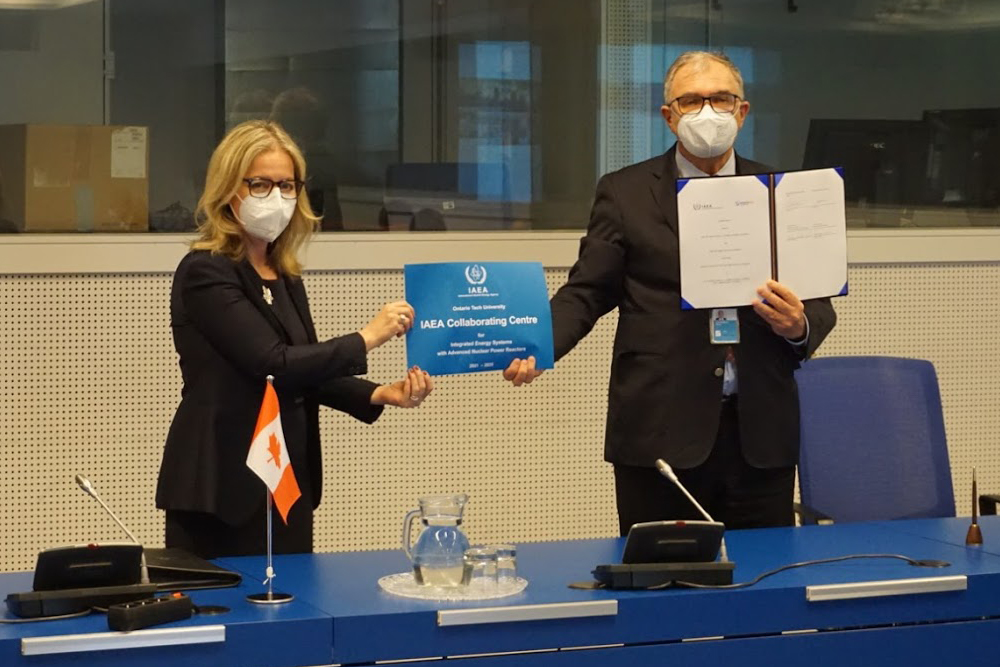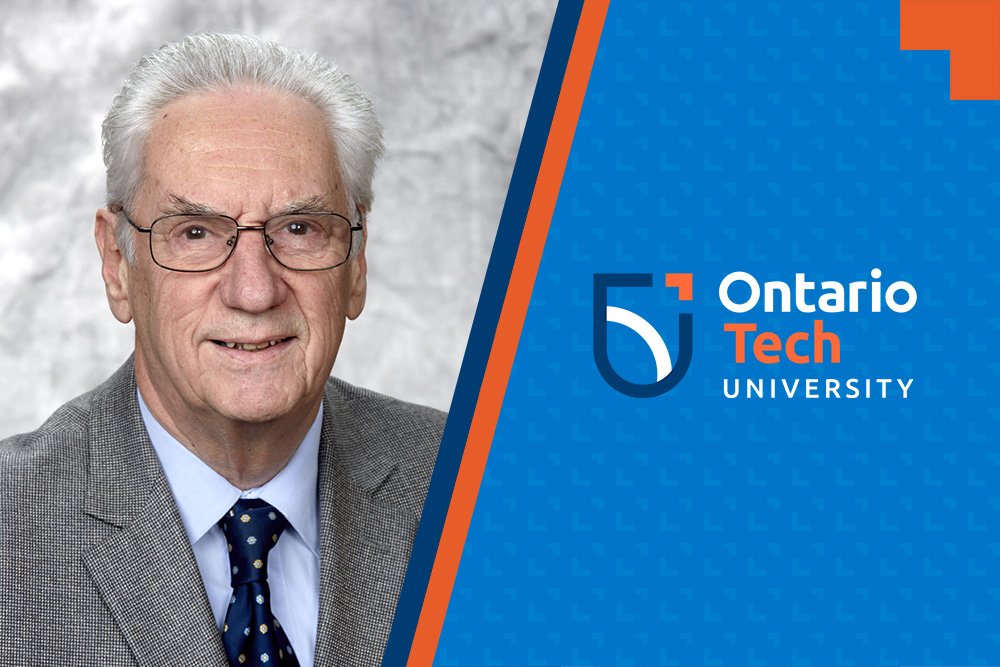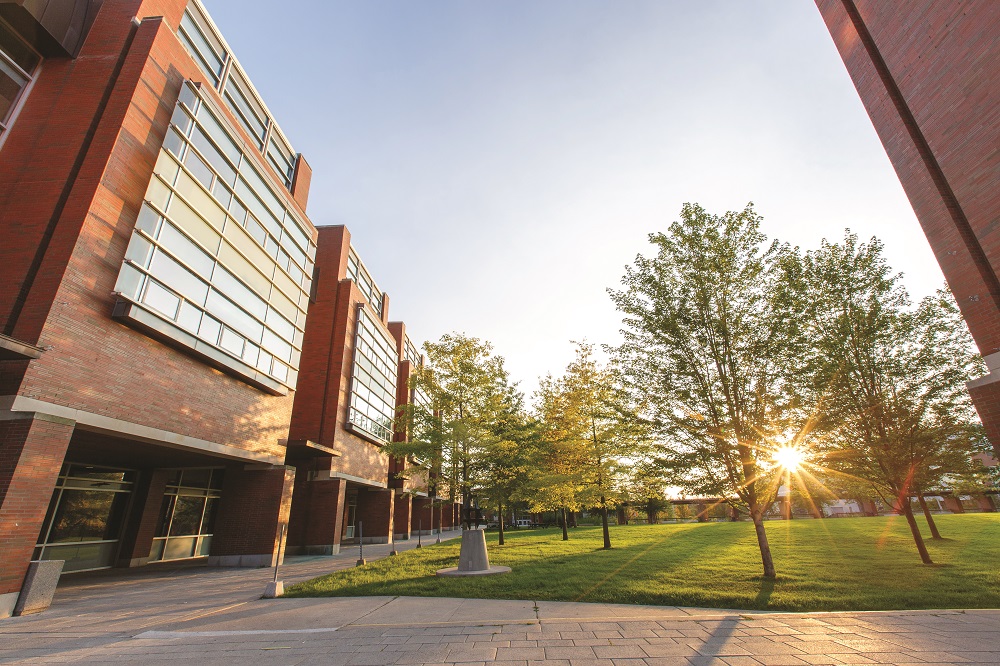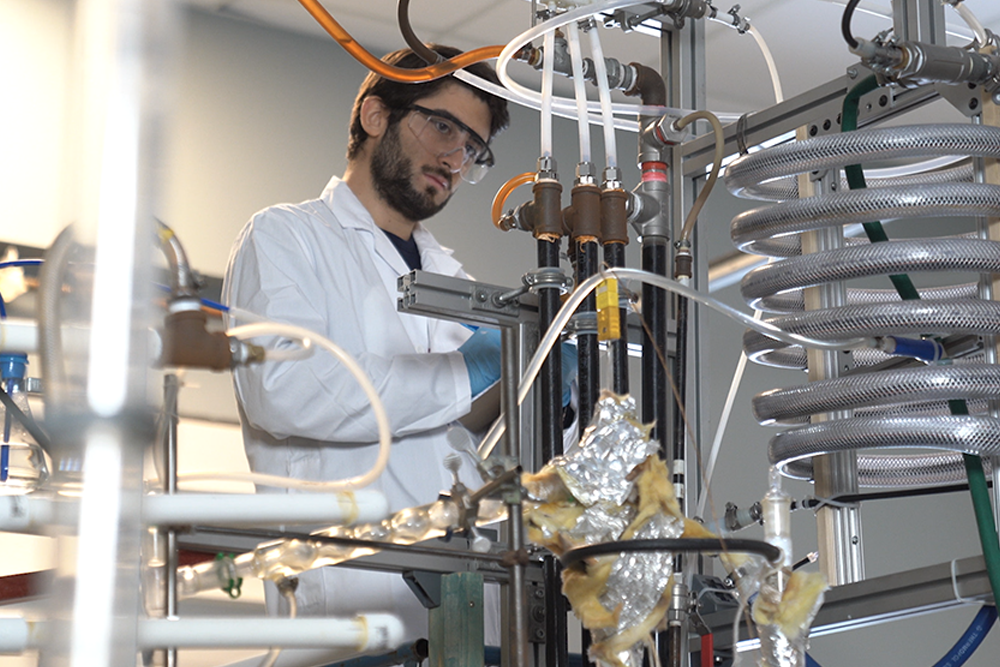Faculty of Energy Systems and Nuclear Science
Another amazing year of research growth at Ontario Tech University
June 23, 2022
There’s further evidence of Ontario Tech’s impressive research growth this Spring after Canada’s research funding Tri-agencies announced a further $4.3 million in new grants for nearly 30 new multidisciplinary projects being led by the university’s experts.
Another great example of why Ontario Tech research experts are in high demand
June 03, 2022
On June 2, Ontario Tech University nuclear engineering researcher Dr. Kirk Atkinson was asked to share his knowledge on the latest developments pertaining to the new and emerging area of small modular reactors (SMRs) before the House of Commons Standing Committee on Science and Research.
Influential Ontario Tech nuclear science researcher reappointed as Canada Research Chair
June 02, 2022
For his outstanding record of research achievement and discovery, the Government of Canada is renewing the Canada Research Chair (CRC) appointment of Ontario Tech University researcher Dr. Markus Piro of the Faculty of Energy Systems and Nuclear Science (FESNS) for a new five-year term, retroactive to January 1, 2022.
Ontario Tech hosts major international workshop on integrated nuclear and renewable energy systems
April 13, 2022
As a prominent centre of sustainable energy research and because of its strong reputation for expertise and new knowledge creation, Ontario Tech University is designated an International Atomic Energy Agency (IAEA) Collaborating Centre, the only one in Canada.
Ontario Tech joins national Indigenous and Black Engineering and Technology PhD Project
March 11, 2022
In February, the Faculty of Engineering and Applied Science at Ontario Tech University joined the IBET PhD Project to provide financial support and foster a supportive, equitable and inclusive research and academic environment to increase the presence of Indigenous and Black academics in engineering and technology.
More students applying to Ontario Tech than ever before
January 31, 2022
Great degree programs, powerful links with industry and a tradition of job-ready graduates are making more students choose Ontario Tech University.
Ontario Tech University designated as one of Canada’s Research Universities of the Year
January 25, 2022
In impressive fashion, for the first time in the university’s history, Ontario Tech has been named one of Canada’s Research Universities of the Year for 2021 by Research Infosource (RI), the country’s premier research ranking organization and leading provider of research intelligence for business and higher education.
Bruce Power expands internships for Ontario Tech first-year female Nuclear Engineering students
December 21, 2021
Bruce Power and Ontario Tech University are partnering on an internship program designed to attract women to pursue post-secondary engineering degrees and careers in the nuclear sector.
Ontario Tech marks National Day of Remembrance and Action on Violence Against Women
December 06, 2021
The National Day of Remembrance and Action on Violence Against Women is a time to remember those who have experienced gender-based violence and those who we have lost to it.
Ontario Tech: A young university earning high-level international rankings and recognition
November 23, 2021
As Ontario Tech University continues to expand its role as a vital research hub and cluster of expertise anchoring the eastern flank of the Greater Toronto Area, the university is staking a reputational claim on the international stage as well.
Ontario Tech launches Canada’s International Atomic Energy Agency Collaborating Centre
November 09, 2021
Recognizing the university’s strong reputation as a prominent centre of innovation, in Spring 2021 the International Atomic Energy Agency (IAEA) designated Ontario Tech as the first Collaborating Centre in Canada to support IAEA activities on advanced nuclear power technology. The Collaborating Centre, formally launched during a virtual event November 2 and 3, 2021, is part of the university’s Brilliant Energy Institute.
Ontario Tech one of five Ontario post-secondary institutions uniting to establish Environmental and Related Technologies Hub (EaRTH)
October 28, 2021
As the global climate crisis accelerates, Ontario Tech University, Centennial College, University of Toronto Scarborough (UTSC), Durham College and Trent University have joined together to advance clean, green, sustainable solutions, such as net-zero vertical farming and technology to reverse groundwater pollution.
Ontario Tech to launch Canada’s International Atomic Energy Agency Collaborating Centre November 2 and 3
October 27, 2021
Ontario Tech University’s deep capacity in sustainable energy research and expertise is poised to play a leading role in helping Canada and the world respond to contemporary energy challenges related to climate change and the development of carbon-free electricity.
OPG renews support for Durham College, Ontario Tech
October 20, 2021
Ontario Power Generation will continue its decade-long collaboration with Durham College and Ontario Tech University through a new $5-million investment.
Join Ontario Tech’s October 14 Women for STEM Summit: Resilient, Responsive, Resourceful
September 15, 2021
Join Ontario Tech University on Thursday, October 14 for the third annual Women for STEM Summit, to discover how women in STEM are helping their organizations and employees succeed and move forward from COVID-19.
Colleagues, alumni and the university celebrate Dr. George Bereznai
August 30, 2021
As one of the university’s first faculty hires by founding president Dr. Gary Polonsky, Dr. George Bereznai played a pivotal role in shaping the university’s culture for innovation and collaboration, and building its reputation as a technology-focused and distinctly modern university.
Ontario Tech University mandating COVID-19 vaccinations for individuals coming to campus
August 12, 2021
Following discussions surrounding the ongoing risks posed by COVID-19, including the emergence of new variants, Ontario Tech University will now require all students, faculty, staff and all other individuals coming to any campus location to be fully vaccinated against COVID-19.
Impactful research here in your community: Ontario Tech experts advancing discovery and applications of knowledge
July 12, 2021
In recent months, Ontario Tech University has received new federal research funding to support more than 30 multidisciplinary projects that will explore solutions to pressing societal problems.
International Atomic Energy Agency designates Ontario Tech as a Collaborating Centre
May 06, 2021
The International Atomic Energy Agency (IAEA) confirms Ontario Tech’s designation as an official Collaborating Centre in support of IAEA activities on integrated Energy Systems with advanced nuclear power reactors including small modular reactors (SMRs) as well as initiatives such as non electric applications of nuclear energy.
Learning from the best: Ontario Tech celebrates excellence in teaching
April 28, 2021
Ontario Tech University students have had their say in nominating their top teachers and innovative instructors for the 2020-2021 academic year.
Small modular reactors: The dawn of a new era of Canadian nuclear energy
April 16, 2021
Small modular reactors (SMR) aim to renew the way Ontario, and Canada, produces nuclear energy in the longer term. In 2019, Ontario signed an inter-provincial Memorandum of Understanding (MOU) related to SMR development, an agreement that connects provincial governments and power utilities in New Brunswick and Saskatchewan. Alberta has now joined the MOU, further solidifying Canada as a global leader in this emerging technology.
Ontario Tech: A university in its element on hydrogen energy research
March 18, 2021
As it approaches its 20th anniversary as a vital central-Canadian hub of research excellence and innovation, Ontario Tech University has established a compelling portfolio of research leadership and expertise in clean and green energy.
Ontario Tech researchers demonstrate powerful international influence
December 15, 2020
A recent study of publicly available research data quantifying the work of the top 100,000 natural science and engineering researchers worldwide puts a group of Ontario Tech University researchers in some very elite company.

